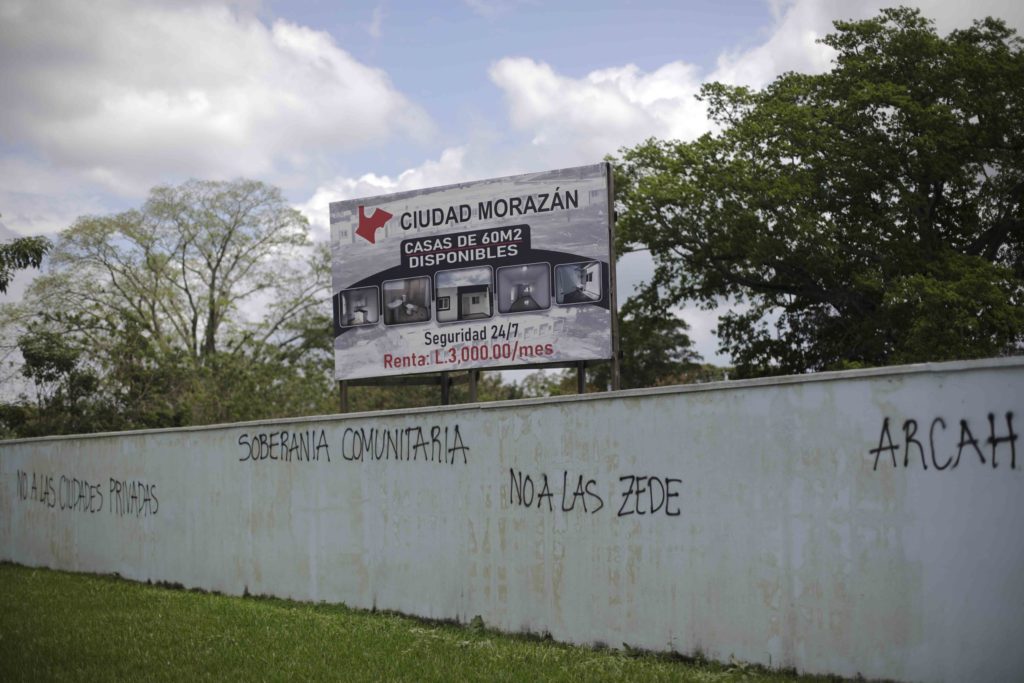On October 31, ordinary sessions in National Congress were brought to a close. This was the last opportunity to ratify the repeal of the ZEDE law. However, the session was marred by disagreements between parties and acts of violence, sidelining one of the most important campaign promises made by the Libre Party. Despite the assertions of the Permanent Commission of National Congress, established the same day and composed of nine congressional members, stating that the ZEDE law has been “repealed,” the statement lacks legal standing because ratification requires a two-thirds supermajority vote. The legal status of ZEDEs, still sanctioned by the constitution but lacking an organic law, remains uncertain.
Text: Célia Pousset
Photography: Jorge Cabrera
Translated by: José Rivera
English Edit by: Amy Patricia Morales
“The ZEDE law has been repealed,” Rasel Tomé, vice president of National Congress, wrote on his X account. “The highly unpopular ZEDEs, which threaten governance and control over territory, have NOT been repealed,” Maribel Espinoza, congresswoman for the Liberal Party, stated on that same social media platform.
Since November 7, discussions on ZEDEs have resurfaced following a statement by the Permanent Commission of the National Congress reaffirming the “total repeal” of the ZEDE law established in 2013 through a constitutional amendment, although lacking authority to ratify the repeal.
The debate began in April 2022, when National Congress repealed the ZEDE law by unanimous vote. In order to repeal that law, two decrees were passed: Decree N. 32-2022 and Decree N. 33-2022.
The former repeals articles in the Constitution that were amended in 2012 to make way for the enactment of the ZEDE law. However, constitutional law stipulates that any amendments to the Constitution must be approved in ordinary sessions with a two-thirds vote. It can then be ratified in “the subsequent ordinary session with the same number of votes in order to come into force.”
In this case, the decree was passed unanimously in 2022, but was not ratified before the end of the 2023 legislative session.
According to Joaquín Mejía, investigator at Equipo de Reflexión, Investigación y Comunicación (ERIC) and lawyer, since the decree was not ratified, “proceedings to reform the constitutional law were not completed, and, as a consequence, ZEDEs are still recognized by the Constitution.”
The ZEDE law, on the other hand, was repealed by the second decree since it only requires a majority vote.
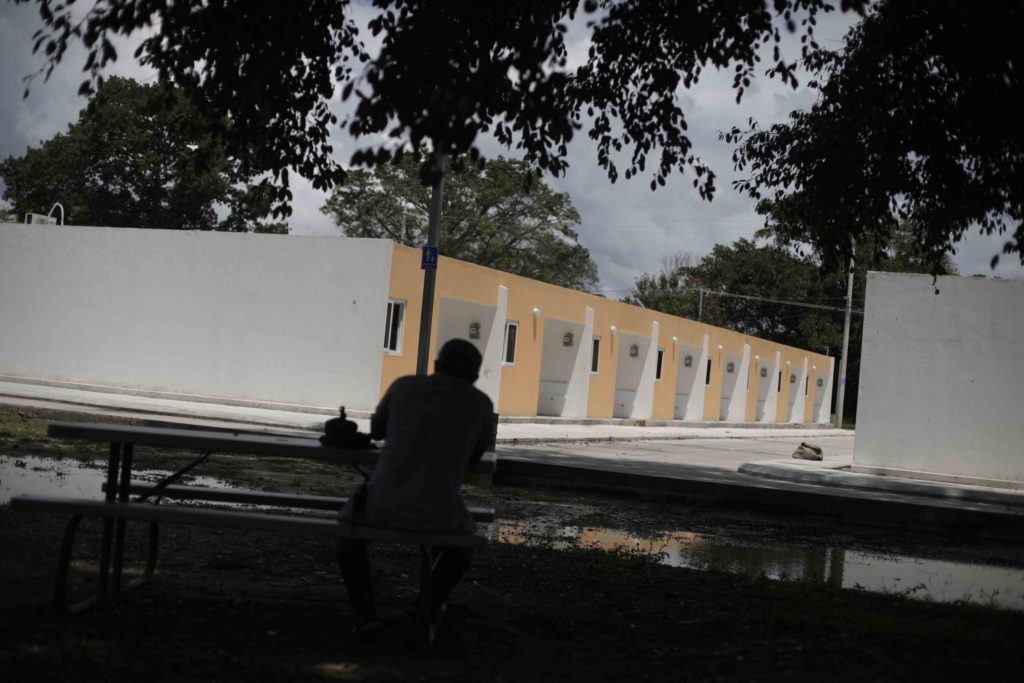
In summary, Mejía affirmed that ZEDEs, as legal entities, exist under the Constitution, but there’s no organic law that grants them the right to operate.
More precisely, the creation of new ZEDEs is not permitted in Honduras, but, since the repeal of constitutional reforms was not ratified, existing ZEDEs remain under legal uncertainty: Próspera in Roatán, Ciudad Morazán in Choloma and Orquídea in San Marcos de Colón.
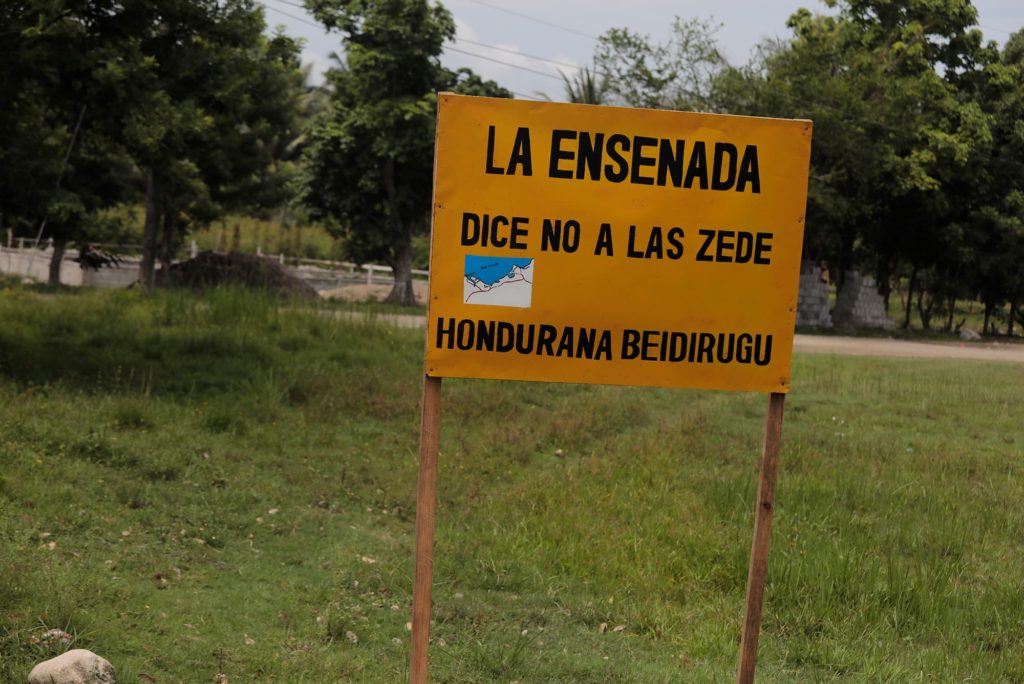
Negotiations to appoint the attorney general
“Many people consider that the Permanent Commission was created in lieu of addressing the issue of ZEDEs. Congressional members of the Libre Party were more interested in appointing the district attorney,” Oscar Hendrix, activist against ZEDEs and lawyer, said. He’s aware that the repeal was not completed since ratification is still pending.
According to Hendrix, the government was not strategic enough when it came to bringing the charter cities to a halt. He regrets that “actions outside of the legislative branch were not considered” and “despite the appointment of new judges at the Supreme Court, there were no efforts to accept appeals of unconstitutionality, which would have been a better approach. Previous judges were in favor of ZEDEs and their interests, but now that we supposedly have the Court on our side, the government did not take advantage of this.”
Appeals of unconstitutionality have also been considered by Libre congressional members. We asked Hugo Noé Pino, vice president of Congress and member of the Permanent Commission, if this commission could take any actions against ZEDEs since efforts to ratify the repealed law failed. He replied: “We’re considering what can be done, but there’s also an appeal of unconstitutionality pending.”
Hendrix admits that from an organizing perspective, they lowered their guard because they had trust in the LIBRE administration and its ability to solve this issue: “Just as the government did not follow up on the ZEDE issue, I believe that we as a citizenry failed to mobilize ourselves.”
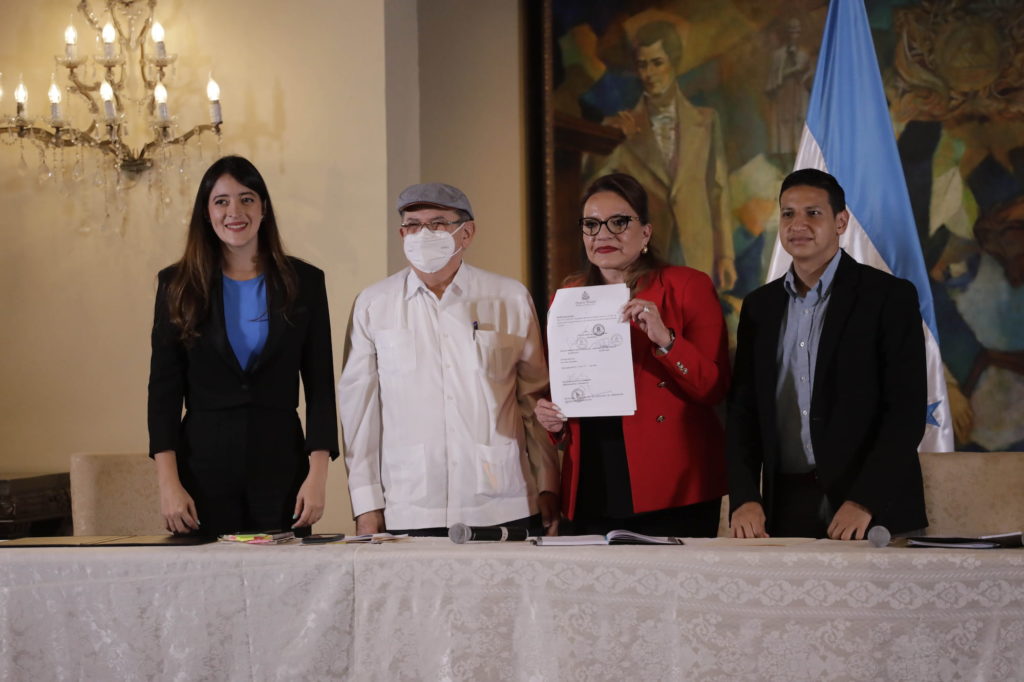
Hendrix also pointed out that the government failed to provide a development and employment model to ZEDEs’ neighboring communities, and which is why a portion of the Honduran population is in favor of these charter cities. This creates conflict with people who fight against the establishment of ZEDEs in their territory: “it’s my understanding that the government hasn’t come up with a social program for these communities. If the State doesn’t provide any support, people will find ZEDEs more appealing.”
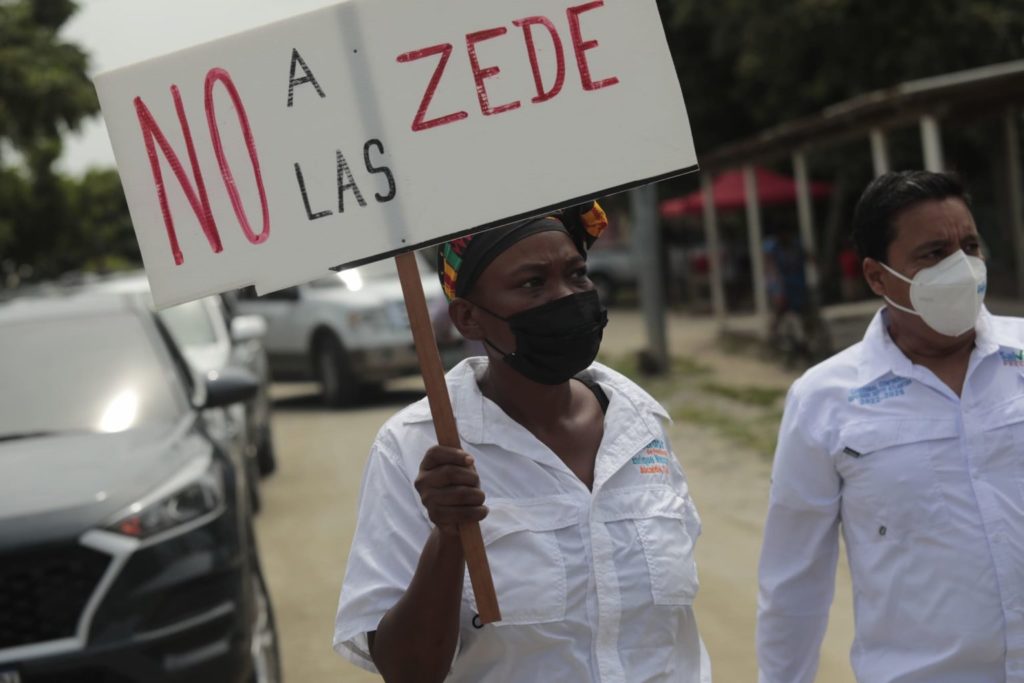
So, are ZEDEs still operating?
Contracorriente interviewed all three technical secretaries of the current ZEDEs in Honduras to find out if they will be shut down or if they will continue.
Jorge Colindres, technical secretary at Próspera, affirmed that the statement by the Permanent Commission is just an intimidation attempt and doesn’t prevent ZEDEs from developing. “Our work continues. We carry out our business activities under the autonomy and acquired rights which are granted to us by the Honduran Constitution, international trade agreements and judicial stability contracts. Treason is taking over public office positions as they did in the Board of Directors of National Congress and the District Attorney’s Office,” he said.
In December 2022, Próspera investors brought forward a $10.775 billion claim against the Honduran State for damages at the International Centre for Settlement of Investment Disputes (ICSID). The Castro Administration did not appoint an arbiter for the process and refused to acknowledge ICSID’s jurisdiction.
Carlos Fortín, technical secretary at Ciudad Morazán, on the other hand, seemed concerned about the legal uncertainty and investors leaving the country: “Ordinary sessions at National Congress came to a conclusion and the ZEDE law repeal was not ratified, so people think that ZEDEs are safe. I don’t think that we will be safe if the intent of politicians is to repeal the ZEDE law and strip it of its legal authority.”
We asked Fernando García, presidential commissioner against ZEDEs, how they’re going to put into practice what they claim – that is, that the ZEDE law is repealed, and if the charter cities will be closed. We didn’t get a response.

